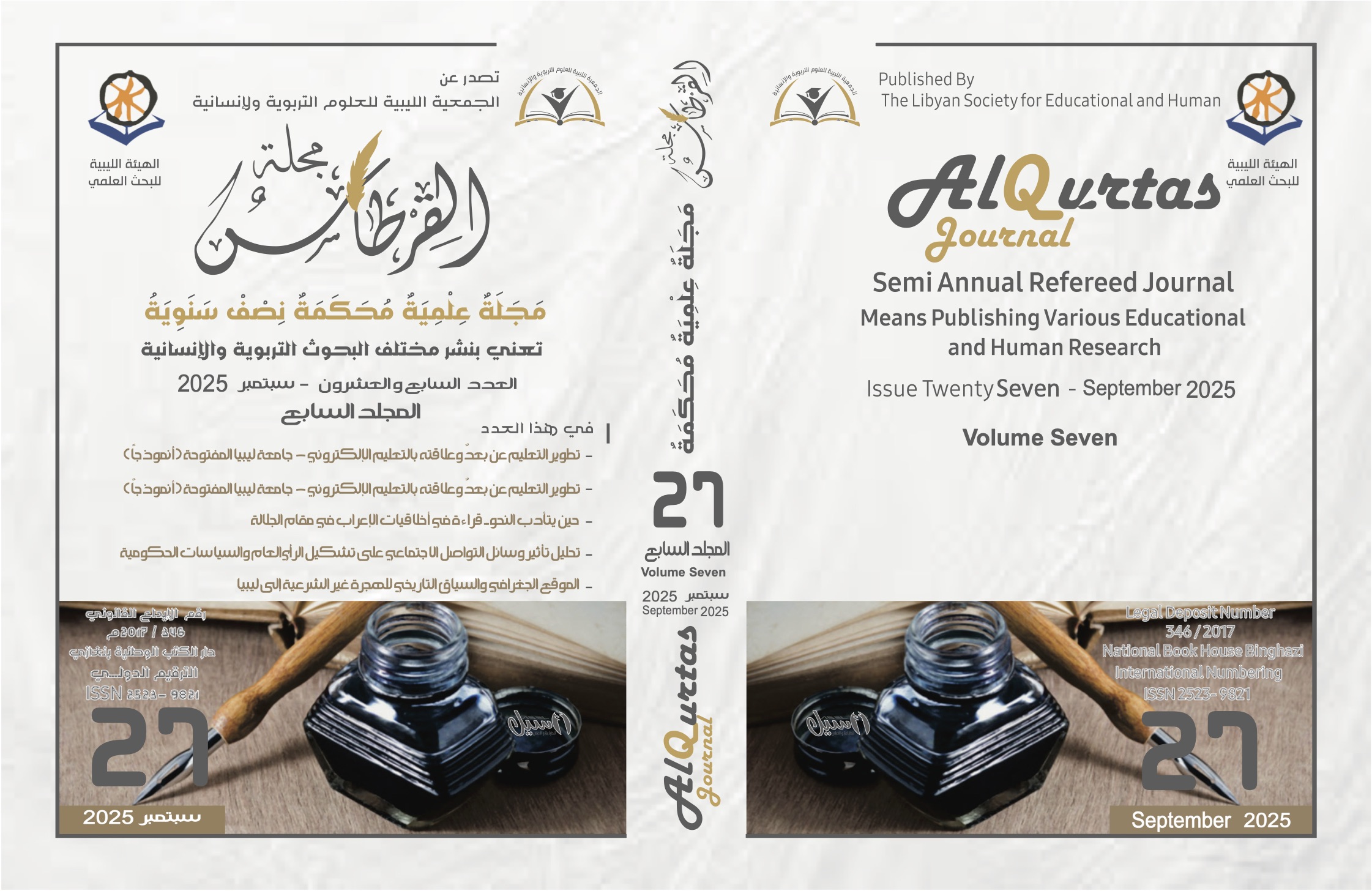تحليل تأثيرات تكنولوجية الذكاء الإصطناعي على موثوقية مهنة المحاسبة والبحث العلمي
محتوى المقالة الرئيسي
الملخص
Artificial intelligence (AI) technologies have rapidly proliferated across numerous fields, particularly in education and scientific research. These technologies offer substantial benefits by enabling self-directed learning and facilitating access to diverse information sources. However, their reliability and ethical application in academic research remains a subject of concern, particularly regarding the accuracy, credibility, and transparency of information derived from AI systems. In scientific research, however, it is important to identify the source of information derived from this technology in research areas, ensuring academic integrity, enhancing the transparency and credibility that scientific researchers must adhere to. Hence, the primary objective of this study was to examine the impact of AI technology on the reliability of accounting profession throughout the double entry theory, theoretical aspects of accounting and scientific research, and the importance of this technology in enhancing and refining scientific and research skills by using it to develop teaching methods, as well as inspiring students with distinctive research titles and the speed with which they can access and analyze information. To achieve this, a questionnaire was distributed to accounting students at University of Tripoli Alahlia in Libya to survey their opinions on the impact of this technology on the accuracy of accounting processes according to the double-entry theory, validity of theoretical aspects of accounting, and reliability of scientific research. The study also used this technology in an accounting course by posing a number of theoretical and practical questions, including a set of simple and complex accounting operations. The study used the Statistical Package for the Social Sciences (SPSS) to analyze data collected from a sample of 50 participants. The study reached a number of results, the most important of which was that the use of this technology provided correct answers to the theoretical inquiries, and on the double entry theory. The same was true for more complex accounting treatments. Its importance in scientific research lies in its ability to save time and provide vast amounts of textual information from various sources, such as research papers or articles. However, participants indicated that it was difficult to determine whether the text was written by artificial intelligence or by humans. Based on these results, students demonstrated practical knowledge of such technologies and their impact on how to conduct theoretical and practical accounting practices and processes, in addition to how to benefit from them in scientific research in a responsible and ethical manner. Undergraduate and postgraduate students, as well as researchers, are required to continue using various AI tools to develop their self-learning skills, and to indicate the source of this information in their research papers, whether it is the results of AI or through other sources, in order to demonstrate integrity, transparency and credibility. As a result, the study recommended that faculty members, specialists and decision-makers at the Ministry of Higher Education and publishing houses benefit from these technologies in the fields of education and scientific research to keep pace with the rapid developments in the work environment.
التنزيلات
تفاصيل المقالة

هذا العمل مرخص بموجب Creative Commons Attribution-NonCommercial 4.0 International License.
